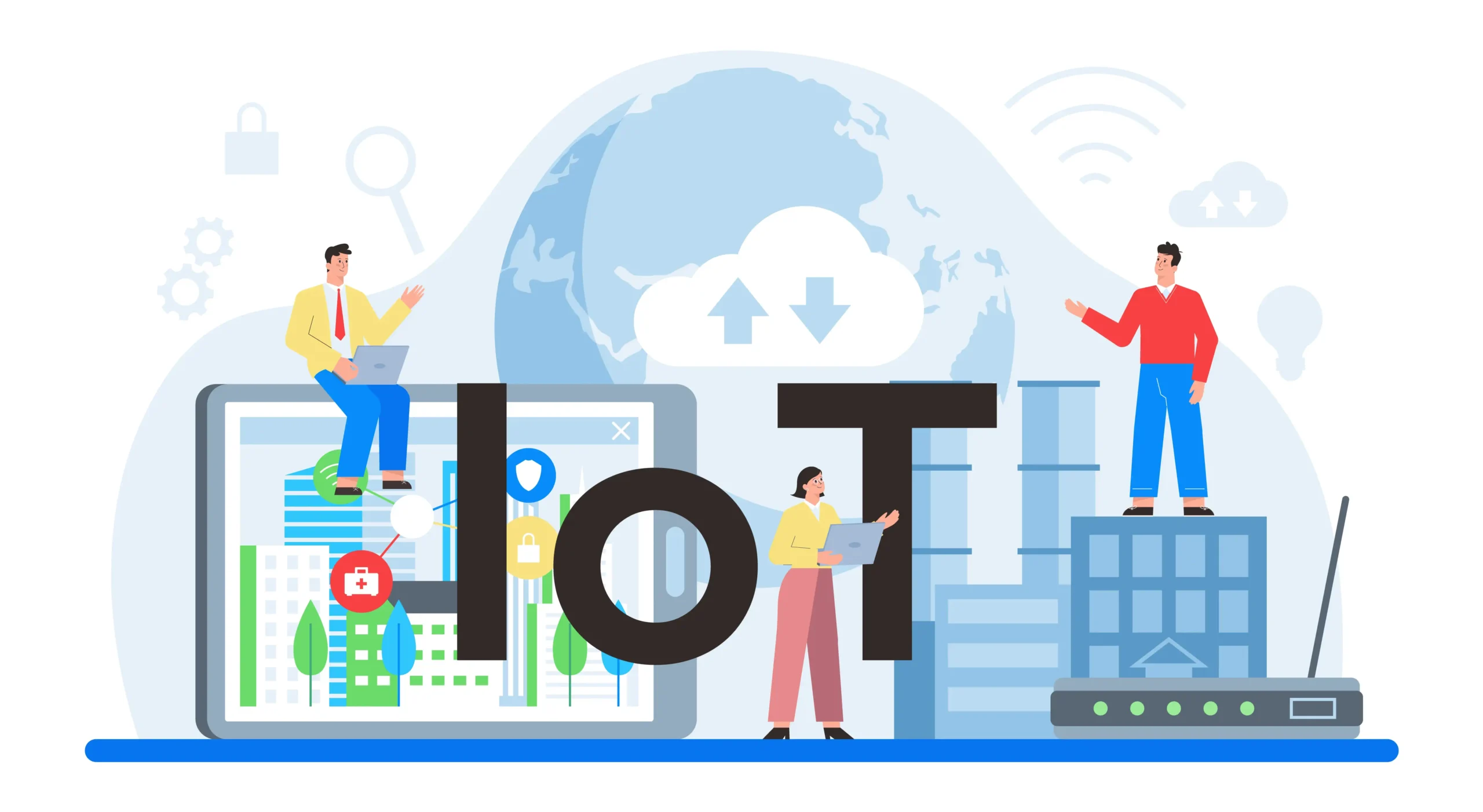Solving the Biggest IoT Challenges
Author: Inza Khan
16 September, 2024
The Internet of Things (IoT) has revolutionized how we interact with technology, promising a future of seamlessly connected devices and data-driven insights. However, as IoT adoption continues to grow, so do the challenges associated with implementing and maintaining these complex systems.
In this blog, we’ll explore the top IoT challenges faced by businesses and individuals, along with practical solutions to overcome them.

1. Security and Privacy Concerns
Challenge:
With billions of connected devices collecting and transmitting sensitive data, IoT security has become a critical concern. Vulnerabilities in IoT devices can lead to data breaches, unauthorized access, and even physical safety risks.
Solution:
To address these security and privacy concerns, organizations should implement robust encryption protocols for data transmission and storage. It’s crucial to regularly update firmware and software on all IoT devices to patch vulnerabilities. Strong authentication methods, including multi-factor authentication, should be used to prevent unauthorized access. Regular security audits and penetration testing can help identify and address potential weaknesses. Finally, adopting a “security by design” approach in IoT product development ensures that security is built into devices from the ground up.
2. Interoperability and Standardization
Challenge:
The lack of universal standards in IoT technology often results in compatibility issues between devices from different manufacturers, hindering seamless integration and data exchange.
Solution:
To improve interoperability, companies should support open standards and protocols. Utilizing middleware platforms can help bridge communication between diverse IoT devices. Participation in industry consortiums working towards IoT standardization is also crucial for long-term progress. Developing APIs that allow for easy integration with other systems and devices can further enhance interoperability across IoT ecosystems.
3. Data Management and Analytics
Challenge:
The sheer volume, velocity, and variety of data generated by IoT devices can overwhelm traditional data management systems, making it difficult to extract meaningful insights.
Solution:
To tackle data management challenges, organizations should implement edge computing to process data closer to the source, reducing latency and bandwidth usage. Utilizing cloud-based big data platforms provides scalable storage and processing capabilities. Employing advanced analytics tools and machine learning algorithms can help in interpreting vast amounts of IoT data. Developing clear data governance policies ensures data quality and compliance throughout the data lifecycle.
4. Scalability and Network Infrastructure
Challenge:
As IoT networks grow, ensuring reliable connectivity and performance across a vast number of devices becomes increasingly complex.
Solution:
To address scalability issues, companies should adopt 5G and other advanced networking technologies for improved bandwidth and reduced latency. Implementing network slicing can optimize resource allocation for different IoT applications. Using mesh networking protocols enhances device-to-device communication in large-scale deployments. Utilizing cloud and fog computing helps distribute processing and storage capabilities across the network.
5. Power Management and Battery Life
Challenge:
Many IoT devices operate in remote or hard-to-reach locations, making power management and battery life critical factors in their long-term viability.
Solution:
To improve power management, developers should focus on creating energy-efficient hardware and software designs. Implementing power-saving protocols like LoRaWAN is essential for low-power, wide-area networks. Exploring alternative power sources such as solar, kinetic, or thermal energy harvesting can extend device longevity. Optimizing data transmission frequency and payload size helps reduce overall power consumption.
6. Device Management and Maintenance
Challenge:
Managing a large fleet of IoT devices, including updates, troubleshooting, and decommissioning, can be a logistical nightmare for organizations.
Solution:
To streamline device management, companies should implement robust remote device management platforms. Utilizing over-the-air (OTA) updates allows for efficient firmware and software maintenance. Developing automated monitoring and alerting systems helps track device health and performance. Creating clear policies and procedures for device lifecycle management, including secure decommissioning, ensures efficient long-term operations.
7. Cost and ROI Justification
Challenge:
The initial investment and ongoing operational costs of IoT implementations can be significant, making it challenging to justify the return on investment (ROI).
Solution:
To address cost concerns, organizations should start with pilot projects to demonstrate value and gather data on potential ROI. Focusing on use cases with clear, measurable benefits and cost savings helps justify investments. Leveraging existing infrastructure where possible can reduce upfront costs. Considering IoT-as-a-Service models allows companies to spread costs over time and reduce initial capital expenditure.
Conclusion
The Internet of Things offers significant opportunities for industries and individuals, but addressing the related challenges is essential for successful implementation. Xorbix Technologies is here to help businesses leverage IoT by providing services that focus on security, interoperability, data management, scalability, power efficiency, and regulatory compliance. Our practical solutions enable organizations to overcome these challenges and make the most of IoT technology.
Read more on related topics:




